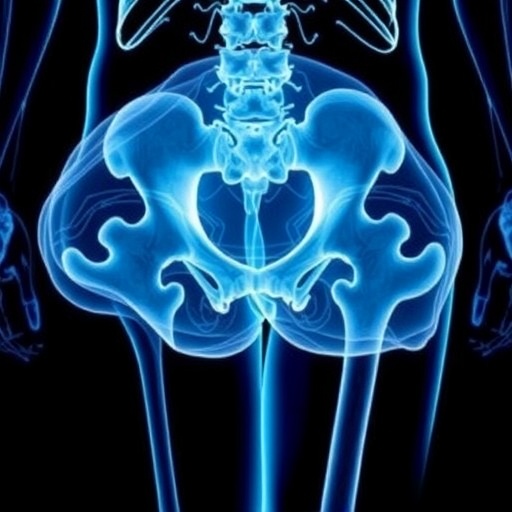In a groundbreaking study published in 2025 in the journal BMC Geriatrics, researchers Li, Chang, and Wang explore the interplay between geriatric cognitive frailty and the short-term prognosis of elderly patients following hip fracture surgery. The study addresses a pivotal concern within geriatric medicine, as hip fractures are a common occurrence among older adults and are often accompanied by cognitive decline, complicating recovery efforts. As the aging population continues to grow globally, understanding the relationship between these two critical factors becomes paramount.
The research highlights that cognitive frailty—characterized by a decline in both cognitive function and physical resilience—poses a significant risk to elderly patients undergoing surgical interventions. This dual frailty can lead to poorer outcomes, increased morbidity, and higher mortality rates in the postoperative period. As such, the study aims to shed light on the potential influences of cognitive capacity on recovery trajectories, thereby informing clinical practices and enhancing patient care.
One of the key findings from Li et al.’s research is the identification of specific cognitive deficits that could predict poorer surgical outcomes. The study systematically examines various cognitive assessments that gauge memory, executive function, and attention in elderly patients before they undergo hip fracture surgery. By establishing a clear correlation between these cognitive markers and recovery outcomes, the researchers provide valuable insights that could shape future preoperative evaluations.
Moreover, the article emphasizes the importance of a multidisciplinary approach in managing geriatric patients facing surgical procedures. The complexities introduced by cognitive frailty require collaboration among surgeons, geriatricians, and rehabilitation specialists. By integrating cognitive assessments into the preoperative evaluation process, healthcare providers can tailor postoperative rehabilitation strategies that cater to the unique needs of individuals suffering from cognitive impairments.
The research methodology employed by Li and his colleagues is noteworthy for its rigorous design. The study included a cohort of elderly patients who were systematically followed from preoperative assessments through their postoperative recovery. This longitudinal approach allowed for the collection of comprehensive data, ensuring that the findings are both valid and reliable. Statistical analyses were meticulously conducted to account for confounding variables, further strengthening the conclusions drawn from the study.
In terms of implications for clinical practice, the findings from this study advocate for early cognitive screening in elderly patients slated for surgeries, particularly those at risk of developing frailty. If cognitive impairments are identified, proactive measures can be taken to enhance recovery, such as specialized therapy programs and support systems. This not only benefits the patients but also alleviates some of the burdens on healthcare facilities faced with high hospitalization and rehabilitation costs associated with complications.
The study may also catalyze further research into therapeutic interventions aimed at mitigating cognitive decline among the elderly, especially in the context of surgical recovery. It beckons a call to action for researchers to explore whether cognitive training or pharmacological treatments could improve not only cognitive function but also surgical outcomes for frail elderly patients undergoing procedures.
Like many research studies, this one does not come without its limitations. The authors acknowledge potential biases, such as selection bias, and the need for further exploration across diverse populations. Future research should also focus on the long-term outcomes of cognitive frailty on hip fracture recovery, as the initial postoperative period is only one aspect of the comprehensive recovery process.
Despite these limitations, the implications of this study are profound. The integration of cognitive assessments could represent a paradigm shift in how geriatric surgical patients are evaluated and treated. By acknowledging that surgical success is contingent not only on physical factors but also on cognitive health, the medical community can strive for an approach that holistically addresses all facets of a patient’s health.
For patients and families grappling with the realities of hip fractures, the findings of this study offer hope and direction. Understanding the risks associated with cognitive frailty can empower patients and caregivers to seek appropriate interventions and advocacy before and after surgical events. Additionally, healthcare practitioners can utilize this research to prioritize multifaceted care plans that focus on enhancing cognitive health alongside physical rehabilitation.
As we navigate the complexities of an aging population, studies like the one by Li et al. are crucial in providing evidence-based frameworks that can improve the resilience and quality of life for elderly patients. The intersection of cognitive health and surgical outcomes must not be overlooked, as it represents a critical frontier in geriatric medicine.
In summary, the research presented by Li and his team not only underscores the urgency of addressing cognitive frailty in surgical contexts but also calls for a concerted effort across various medical fields to enhance the standard of care for our aging populations. As the field evolves, continued attention to cognitive health as an integral component of surgical recovery will undoubtedly lead to improved patient outcomes and quality of life in the golden years.
Strong implications for clinical practices, coupled with an appeal for further research, solidify the relevance of this study within the scientific community. The evidence provided by Li et al. serves as a catalyst for meaningful change in how we approach geriatric care, particularly in surgical settings. As we interpret these findings, the future of geriatric medicine becomes increasingly illuminated with possibilities for enhanced patient welfare and understanding.
By championing the cause of cognitive health in the realm of surgical recovery, we can create a robust framework that ultimately leads to better health trajectories for older adults grappling with the ramifications of hip fractures and cognitive frailty.
Subject of Research: The relationship between geriatric cognitive frailty and postoperative prognosis in elderly hip fracture patients.
Article Title: Geriatric cognitive frailty and short-term prognosis following hip fracture surgery.
Article References:
Li, B., Chang, J., Wang, Y. et al. Geriatric cognitive frailty and short-term prognosis following hip fracture surgery.
BMC Geriatr 25, 734 (2025). https://doi.org/10.1186/s12877-025-06412-8
Image Credits: AI Generated
DOI: 10.1186/s12877-025-06412-8
Keywords: Geriatric cognitive frailty, hip fracture surgery, postoperative recovery, elderly healthcare.




